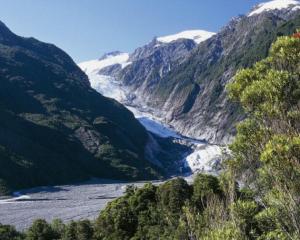The new freedom camping sites established by the Grey and Westland district councils are hurting - if not killing - their rate-paying businesses, campground owners say.
Up to 30 campers a night are parking for a free night at the Waitaha River camp site near Pukekura, and more than 20 a night at Acre Creek, near Serpentine.
The new sites were paid for with a $780,000 grant from the Government as a solution to freedom camping litter and defecation.
At Pukekura, Roydon Dick and Katie Earnshaw operate a small camping ground just five minutes from where a free site was recently established by the council at Beach Road, Waitaha.
Since the Waitaha one opened last month, Mr Dick has seen up to 30 vehicles a night staying there, enjoying the free rubbish and toilet facilities.
In comparison, his long-established campground, which charges $10 per person per night, had just seven guests on Saturday night.
"We feel as though council have blatantly slapped us in the proverbial face.
"This is a move that also has the potential to cripple our business by the end of this summer.''
Mr Dick and Ms Earnshaw said there were already three established camping sites within a 15-minute drive of Waitaha beach - all charging under $10 to stay.
Mark Brown, of the Empire Hotel and camping ground in Ross, voiced the same concerns when a trial site was mooted on the Ross Domain, near his business.
"We already service the campers with hot showers, toilet facilities ... for just $10, yet still we get people in the s... vans who want to stay for nothing.''
An Acre Creek campsite, near Serpentine, was one of the first to open and has been packed most nights.
Acre Creek is about 15 minutes from established camps in both Greymouth and Hokitika.
In Greymouth, two packed sites at Cobden have been joined by an additional area at the Blaketown tiphead.
Greymouth Top 10 Holiday Park owner Matt Levien said they were ``absolutely being affected by freedom camping at council sites, along with Airbnb''.
Camper vans now made up less than 20% of their business, whereas last year it was 35%, and they had vacancies over the Christmas-New Year period, which was not normal.
"The campers get their rubbish collected for free. The toilets in the council areas are cleaned for the visitors too but we have to pay for the dump and our cleaners.''
At Rapahoe, camping ground owner Jan Fletcher is also feeling the impact.
"There are plenty ringing up, but not following through,'' Mrs Fletcher said.
Meantime, the council's free camp sites were full.
Ross Top 10 Holiday Park owner Sue Stile has also seen business drop, though she said the weather was also partly to blame.
She and her husband bought the park two years ago, but if she had arrived more recently they would not have bothered.
The Government pushed sustainability and tourism, and keeping young people on the Coast, and then the council ``set up a free camp site that takes away business''.
"It just seems unfair.''
If people could not afford $40 a night, they could instead hire a car and sleep in cabins. Or if they could not afford to pay to camp they should "cut their cloth'', she said.
The Holiday Parks Association represents camping grounds, and chief executive Fergus Brown said anecdotally they were hearing that numbers staying at paying camping grounds on the West Coast were down.
"These [new sites] are ratepayer-funded - ratepayers are meeting the costs of collection of rubbish and providing [toilet] facilities.
"The private sector is doing it themselves. You have to question it.''












